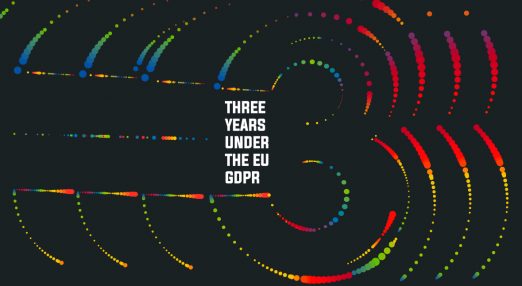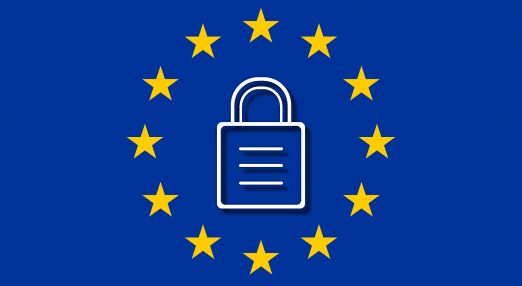IuRe teams up with journalist to sue the Czech state for mobile phone data collection
The Czech state has been collecting data on the mobile communications of all its citizens. While the content of the communication remains unknown, other types of data are stored for six months through telecommunication operators. The stored data includes information on phone traffic and the locations of the internet connection. However, according to EDRi's member Iuridicum Remedium (IuRe), such large-scale data collection conflicts with European legislation. Therefore, together with investigative journalist Jan Cibulka, it has decided to sue the Czech state and demand an apology for illegal data collection.
Filter resources
-

IuRe teams up with journalist to sue the Czech state for mobile phone data collection
The Czech state has been collecting data on the mobile communications of all its citizens. While the content of the communication remains unknown, other types of data are stored for six months through telecommunication operators. The stored data includes information on phone traffic and the locations of the internet connection. However, according to EDRi's member Iuridicum Remedium (IuRe), such large-scale data collection conflicts with European legislation. Therefore, together with investigative journalist Jan Cibulka, it has decided to sue the Czech state and demand an apology for illegal data collection.
Read more
-

GDPR: Three years in, and its future and success are still up in the air
The EU’s General Data Protection Regulation (GDPR) is not living up to the hype. When first implemented in 2018, the GDPR was presented as the new world standard for privacy and data protection. The law has increased data protection awareness and led to significant legal changes all over the world. Yet EDRi member Access Now’s new report, Three years under the GDPR: An implementation progress report, explores just how far this legislation still has to go before its promises — and potential — are truly fulfilled.
Read more
-

Stronger enforcement is key to the effectiveness of the GDPR
On the third anniversary of the entering into force of the General Data Protection Regulation (GDPR), EDRi sent a message to Members of the European Parliament calling for stronger enforcement of the GDPR, as well as the adoption of necessary additional legislation where appropriate.
Read more
-

Transparency for institutions, privacy for the people
Much has been said about abuses of personal data by platforms like Facebook and other private companies. However, there is little observation of non-compliance by public administrations or institutions such as the policies undermining the privacy of the public and the small (or large) daily abuses people are subject to.
Read more
-

3rd Anniversary of the GDPR
Europe can pride itself to have passed the most progressive privacy legislation in the world, but small errors in the law and the lack of enforcement lead to legitimate frustration of users and small business. EDRi's member noyb reflects on the nature and impact of the GDPR.
Read more
-

noyb aims to end “cookie banner terror” and issues more than 500 GDPR complaint
EDRi's member noyb.eu sent over 500 draft complaints to companies who use unlawful cookie banners - making it the largest wave of complaints since the GDPR came into force. "Some companies are clearly trying everything to make privacy a hassle for users, when they have a duty to make it as simple as possible."
Read more
-

Human rights groups win European Court of Human Rights claim on UK mass surveillance regime
Eight year legal battle against UK mass surveillance programmes exposed by whistleblower Edward Snowden culminates in victory for privacy. EDRi's member Privacy International worked actively to make this happen.
Read more
-

EU Parliament adopts the Covid Pass: risks for data protection and new forms of discrimination
At first glance, teh Digital Green Certificate may sound interesting, but upon further reflection, it quickly becomes clear that the proposed system has the potential to divide society and expose certificate holders to far-reaching surveillance by the authorities that issue the documents. Even worse, it exacerbates inequalities and increases social exclusion, shares EDRi's member epicenter.works.
Read more
-

Why EU needs to be wary that AI will increase racial profiling
Central to predictive policing systems is the notion that risk and crime can be objectively and accurately forecasted. Not only is this presumption flawed, it demonstrates a growing commitment to the idea that data can and should be used to quantify, track and predict human behaviour. The increased use of such systems is part of a growing ideology that social issues can be solved by allocating more power, resources - and now technologies - to police.
Read more
-

E-Evidence: trilogues kick off on safeguards vs. efficiency
The Regulation on European production and preservation orders for electronic evidence in criminal matters (E-Evidence) aims to create clear rules on how a judicial authority in one Member State can request electronic evidence from a service provider in another Member State. One such use case would be requesting user data from a platform in another EU country during an investigation. We wrote about our main issues in the past.
Read more
-

EU: New “ad-hoc working group” on vaccine passports starts work – in secret
EDRi's member Statewatch shares that discussions amongst EU member states on how to approach plans for digital vaccination certificates are taking place in a new "ad-hoc working group", a format that is not likely to foster transparency - particularly given that the group has said it will not be keeping "minutes as such".
Read more
-

Buy a phone, get a tracker: unauthorized tracking code illegally installed on Android phones
EDRi's member noyb launched further action against Google’s AAID (Android Advertising Identifier), following similar complaints against Apple’s IDFA. The somewhat hidden ID allows Google and all apps on the phone to track a user and combine information about online and mobile behaviour. While these trackers clearly require the users’ consent (as known from “cookie banners”), Google neglects this legal requirement. noyb therefore filed a complaint against Google’s tracking code AAID.
Read more
